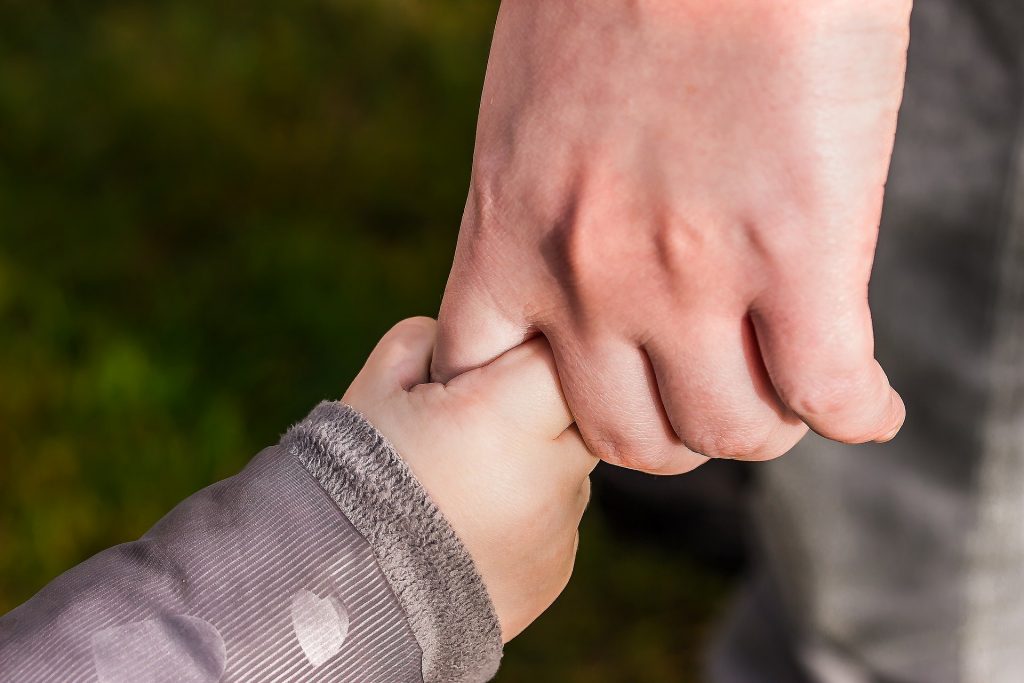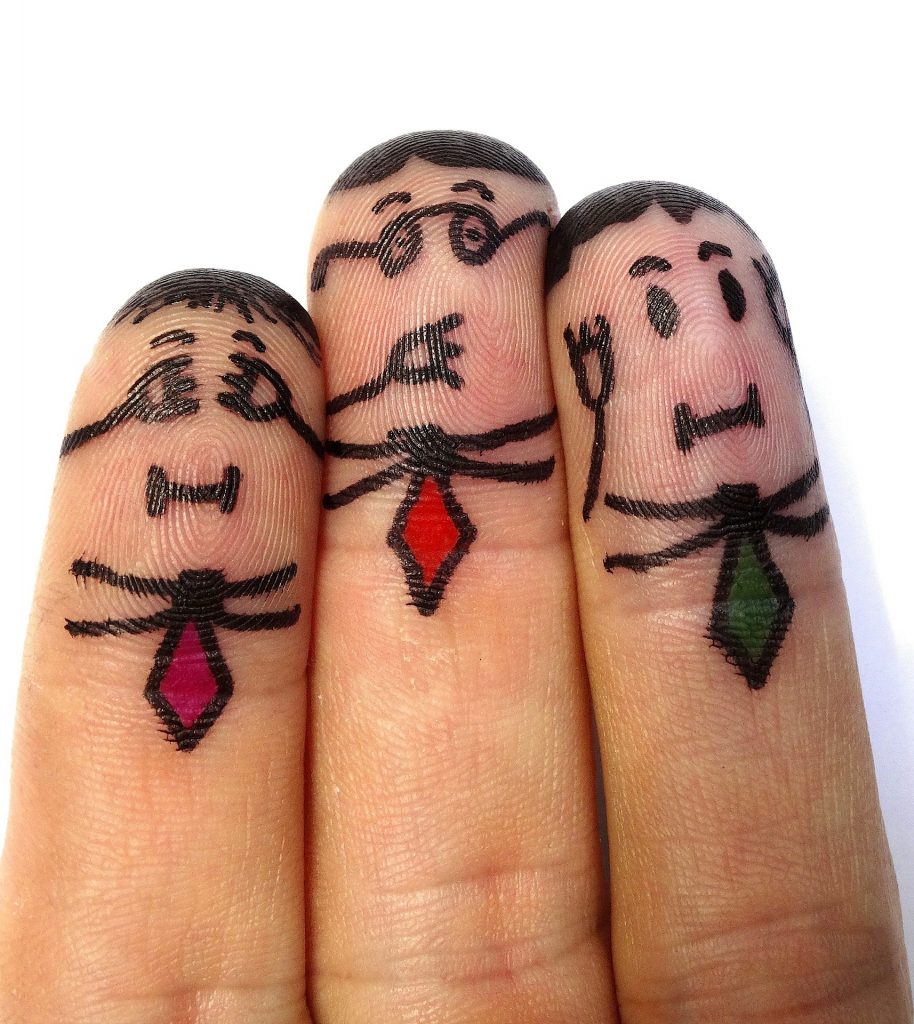It’s Children’s Mental Health Week which means that more than ever people will be shining the light on young people’s mental health. The theme this year is called Finding Your Brave. Whilst we should all be raising awareness of children’s mental health throughout the year, this is a great time to get the conversation going.

Perhaps the one thing that frustrates me most about talking about children’s mental health is that often those voices are missing. In my job in mental health education, children and young people’s mental health is the topic I get asked to talk about most. Which is great. It’s way past time for us to be talking about it. And yet. When we sit down to talk and learn, I can’t help wondering, where are the children?
Bridging the Gap
I feel privileged that I get to work with both children and adults in mental health. The discussions I have are always eye-opening and I truly hope they drive the conversation about mental health forward. But sometimes it feels like the children and the adults who are concerned about them are living in different worlds. Or speaking from different scripts.
I spend a lot of my time asking children and teenagers what their thoughts are. And if they feel like the adults around them are on the money with their concerns. In workshops with adults, I ask them what they think young people’s concerns are. Then I play match up.
Being the bridge or the go-between isn’t always easy. And it makes me wonder why don’t we do more of this? Why aren’t we asking young people their thoughts? Because they definitely have them. But they often feel dis-empowered by all the adults making assumptions about how they think or feel. When we don’t listen to them, we’re missing out.
Finding My Brave
As I mentioned, the theme of Children’s Mental Health Week is Finding Your Brave. So, I’ve delved deep and found mine. I think there are certain narratives we miss when we don’t ask young people their thoughts. How do I know this? For one, I hear it all the time in the work I do. And second, I’ve been there. All of us have. We’ve all got mental health and therefore we’ve all been a child with mental health.
On top of this, I was diagnosed with depression at sixteen after a particularly difficult bereavement. With help, I got better. I’ve recovered. But it took me months to say the words. To reach out for the support that I so desperately needed. There were many things left unsaid. Simply because no-one asked. And, at least it felt like, no-one was listening.
Giving A Voice
So, it’s Children’s Mental Health Week. It’s time to raise awareness of young people’s mental health. There will be many articles, loads of tweets and perhaps some fundraisers. This is great. But if we really want to know, we need to go back to the source. Ask the young people around us what their thoughts are. Ask them what it’s like to be a young person in the 21st century.
Let’s give young people a voice. Putting young people at the centre of Children’s Mental Health Week is crucial. Otherwise a lot of what we discuss is tokenism at best and a waste of energy at worst.
It’s great that people have good intentions. All the adults I meet with concerns truly want to help. They’re coming from a good place. But they often also work with children or have their own. Why aren’t they asking them the questions they ask me?
So, please, this Children’s Mental Health Week, include the kids in your conversations. Talk to them about the world around them. How they think and feel about it. And most importantly, be there to listen.
What are your thoughts on Children’s Mental Health Week? What questions will you ask the young people around you?
Read my thoughts on other mental health campaigns here.


Very powerful article. I work in safeguarding and see the impact MH has on our children. Allowing them the space to talk about it in a way they feel comfortable doing is so hugely important x
Thanks Claire. I couldn’t agree more.
Even when they think they’ve got nothing to say usually it turns out that they do.
Also getting used to having low level conversations with kids and asking about them means that (hopefully!) if anything is on their mind they’ll come to you and let you know!
I think its so important that we encourage young people to talk about mental health from a young age. Hopefully, as a result, the future will have more knowledge and awareness of the importance of mental health and know how to better support one another.
Yes we need to get them talking and include them in decisions which involve them!
Great post Emma, I remember growing up no one ever asked me what I had to say. I try to make a point of listening to everyone. I find as with kids and teens this also happens with seniors.
I love how your raising awareness. Keep going, you’re doing fantastic
You’re too kind. I do think including children in the conversation is the way to go. It’s about them anyway and I think we often underestimate somethings and overestimate others. Plus all children are going to be different so we really need to hear a variety of opinions!
It should be as natural for children to talk about their mental health as it is to talk about their physical health. Let’s hope that one day that will be the case.
Too true! Fingers crossed for that day!
I try to talk about my MH issues with my kids often, in ways they can understand at their age (4.5 + 3) “Sometimes mommy feels sad. Mommy just needs to rest for a few minutes. etc” I hope that helps them see that it is okay to talk about it when they are feeling tough things. Thanks for being an advocate!
Very thought provoking. I am a Young Adult author who often wonders about how to help teens and what their thoughts are. You might be a good person for me to touch base with for insights. You are right, the voices of children and teens are often missing.
It’s so key that we create a culture where mental health is spoken about from a young age. Really insightful post, thanks for sharing!
Child and adolescent mental health is so important and needs to be addressed more, especially here in the UK. Tackling the issues at a young age is always much better than letting them fester.
Agreed. Early intervention is key!
Great post. It’s important to encourage children to talk about mental health from a young age.
This is such an important topic. Of course, we need to ask children what they need. We are a strange society, we put so much pressure on children and often treat them older than their year but when it comes to big questions, all too often they are viewed as not old enough to answer! Having conversations about mental health with young people, about what worries them and about what helps them, will improve services fr young people and empower them. Thank you for such an important post.
Young people fall into a weird trap where we expect them to act like adults but we still treat them like children. I remember finding it incredibly frustrating!
Beautiful and very thought provoking post. Thank you